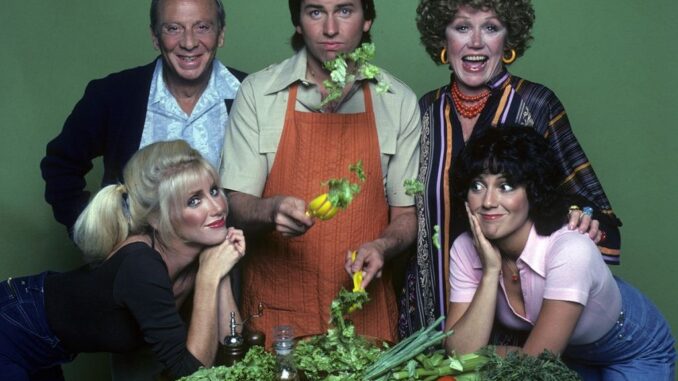
“Three’s Company,” the iconic sitcom from the late ’70s and early ’80s, gave us plenty of laughs and unforgettable moments. But not all of its content has stood the test of time. While many fans still cherish the humor and antics of Jack Tripper, Janet Wood, and Chrissy Snow, some episodes contain scenes that feel outdated—or even cringe-worthy—when viewed through a modern lens.
Let’s dive into the infamous moment that aged poorly, breaking it down to explore its context, implications, and why it sparks such a debate today.
H1: A Trip Down Memory Lane—The Legacy of ‘Three’s Company’
“Three’s Company” captured the hearts of millions with its slapstick humor and lighthearted misunderstandings. Its success stemmed from relatable characters, comedic timing, and themes of friendship. However, like many shows of its era, it reflects the cultural norms of the time—some of which don’t align with today’s values.
H2: Why Is Revisiting Old Sitcoms Important?
Old shows offer a snapshot of societal attitudes during their airing. Revisiting them isn’t just about nostalgia; it’s an opportunity to reflect on how far we’ve come—or where we still need to improve.
H1: The Moment That Raised Eyebrows
H2: The Setup—A Classic ‘Three’s Company’ Plot
One of the show’s signature tropes involved Jack pretending to be gay to avoid complications with his conservative landlord, Mr. Roper. While this plot device was humorous in its time, it’s now seen as problematic.
H3: The Scene in Question
In one infamous moment, Jack exaggerates stereotypical behaviors associated with gay men. The over-the-top portrayal, though meant to be funny, feels offensive and perpetuates harmful stereotypes.
H4: Context Matters—But Does It Excuse Everything?
In the 1970s, visibility for LGBTQ+ characters was minimal, and their representation often leaned heavily on caricature. While the intent was comedic, modern audiences see the scene as tone-deaf and insensitive.
H1: Why This Moment Feels Outdated
H2: The Evolution of LGBTQ+ Representation
Fast forward to today, and the media landscape has changed significantly. LGBTQ+ characters are now portrayed with depth and authenticity, making earlier stereotypes glaringly obvious.
H3: The Power of Stereotypes in Media
Media plays a huge role in shaping perceptions. The exaggerated depiction in “Three’s Company” reinforces outdated ideas about the LGBTQ+ community, which were already prevalent in that era.
H1: The Cultural Shift—Then vs. Now
H2: How Humor Has Changed Over the Decades
Humor evolves alongside societal values. Jokes that once elicited laughs might now provoke discomfort, highlighting how our collective sense of right and wrong has grown.
H3: Cancel Culture or Accountability?
Some argue that critiquing old shows amounts to cancel culture, but others see it as holding media accountable for the messages it sends—even decades later.
H1: Learning from the Past
H2: Why Discussing These Moments Matters
Addressing problematic moments in media helps foster better representation in future storytelling. It also invites viewers to critically engage with the content they consume.
H3: Appreciating ‘Three’s Company’ While Acknowledging Its Flaws
Loving a show doesn’t mean ignoring its missteps. Instead, it’s about enjoying the good while learning from the bad.
H1: Final Thoughts—Aged Humor, Timeless Lessons
“Three’s Company” remains a beloved classic for good reason, but it’s essential to view it with a critical eye. By examining moments that haven’t aged well, we can appreciate how far we’ve come in promoting inclusivity and respect in storytelling.
FAQs
1. What is the controversial moment in ‘Three’s Company’?
The moment involves Jack Tripper exaggerating stereotypical gay behaviors, which now feels offensive due to its reliance on outdated stereotypes.
2. Why are old sitcoms being re-evaluated?
Re-evaluating old sitcoms helps society reflect on how cultural norms have evolved and how media can shape perceptions.
3. Was ‘Three’s Company’ progressive for its time?
In some ways, yes. The show tackled topics like cohabitation and gender roles, but it also relied on stereotypes that don’t hold up today.
4. How can fans enjoy ‘Three’s Company’ responsibly?
Fans can enjoy the show by acknowledging its humor and cultural significance while critically reflecting on its flaws.
5. What’s the takeaway from this discussion?
The key takeaway is to appreciate the progress made in media representation while using past mistakes as lessons for the future.
